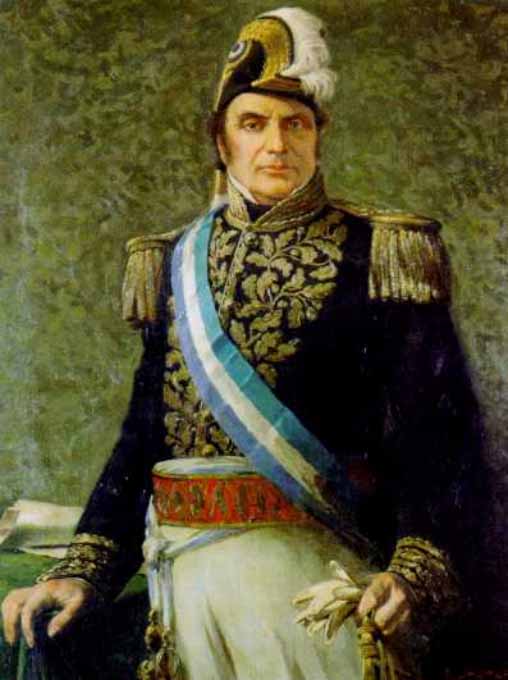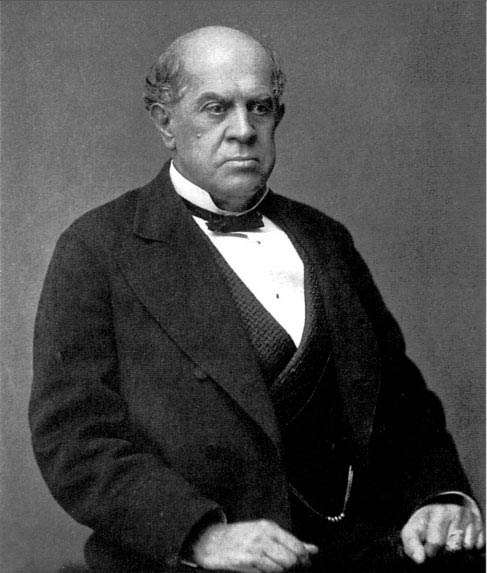|
List Of Vice-Presidents Of Argentina
The vice president of Argentina ( es, Vicepresidente de Argentina), officially known as the vice president of the Argentine Nation ( es, Vicepresidente de la Nación Argentina), is the second highest political position in Argentina, and first in the line of succession to the president of Argentina. The office was established with the enactment of the Argentine Constitution of 1853. The vice president assumes presidential duties in a caretaker in case of absence or temporary incapacity of the head of state, and may succeed to the presidency in case of resignation, permanent incapacity, or death of the president. The longest vice presidential tenure as caretaker in Argentine history took place between 1865 and 1868, while President Bartolomé Mitre was preoccupied with the Paraguayan War. Seven Argentine vice presidents have succeeded to the presidency: Juan Esteban Pedernera (1861); Carlos Pellegrini (1890); José Evaristo Uriburu (1895); José Figueroa Alcorta (1906); Victorino ... [...More Info...] [...Related Items...] OR: [Wikipedia] [Google] [Baidu] |
Cristina Fernández De Kirchner
Cristina Elisabet Fernández de Kirchner (; born 19 February 1953), often referred to by her initials CFK, is an Argentine lawyer and politician who has served as the Vice President of Argentina since 2019. She also served as the President of Argentina from 2007 to 2015 and the first lady during the tenure of her husband, Néstor Kirchner. She was the second female president of Argentina (after Isabel Perón) and the first elected female president of Argentina. Ideologically, she identifies herself as a Peronist and a progressive, with her political approach called Kirchnerism.BBC News. 18 April 2006Analysis: Latin America's new left axis. Born in La Plata, Buenos Aires Province, she studied law at the University of La Plata, and moved to Patagonia with her husband Néstor Kirchner upon graduation. She was elected to the provincial legislature; her husband was elected mayor of Río Gallegos. She was elected national senator in 1995, and had a controversial tenure, while ... [...More Info...] [...Related Items...] OR: [Wikipedia] [Google] [Baidu] |
1853 Argentine Presidential Election
The Argentine presidential election of 1853 was held on 1 November to choose the first president of the Argentine Confederation for the period 1854-1860. Justo José de Urquiza was elected president by a wide margin. It was the first presidential election after the unification of the country in 1852, after Justo José de Urquiza defeated Juan Manuel de Rosas at the Battle of Caseros on 3 February 1852. The State of Buenos Aires seceded on 11 September 1852 and did not participate in elections until 1862 Events January–March * January 1 – The United Kingdom annexes Lagos Island, in modern-day Nigeria. * January 6 – French intervention in Mexico: French, Spanish and British forces arrive in Veracruz, Mexico. * January .... Results Results by Province Notes References * * * * {{Argentine elections 1853 elections in South America 1853 elections 1853 in Argentina 1853 Elections in Argentina ... [...More Info...] [...Related Items...] OR: [Wikipedia] [Google] [Baidu] |
Domingo Sarmiento
Domingo Faustino Sarmiento (; born Domingo Faustino Fidel Valentín Sarmiento y Albarracín; 15 February 1811 – 11 September 1888) was an Argentine activist, intellectual, writer, statesman and the second President of Argentina. His writing spanned a wide range of genres and topics, from journalism to autobiography, to political philosophy and history. He was a member of a group of intellectuals, known as the '' Generation of 1837'', who had a great influence on 19th-century Argentina. He was particularly concerned with educational issues and was also an important influence on the region's literature. Sarmiento grew up in a poor but politically active family that paved the way for many of his future accomplishments. Between 1843 and 1850, he was frequently in exile, and wrote in both Chile and in Argentina. His greatest literary achievement was ''Facundo'', a critique of Juan Manuel de Rosas, that Sarmiento wrote while working for the newspaper ''El Progreso'' during his exile ... [...More Info...] [...Related Items...] OR: [Wikipedia] [Google] [Baidu] |
1868 Argentine Presidential Election
The Argentine presidential election of 1868 was held on 12 April to choose the president of Argentina. Domingo Sarmiento was elected. Background Presiding over a prosperous economy overshadowed somewhat by the costly Paraguayan War, President Mitre was at pains to avoid risking the tenuous national unity his administration had secured. Though he hand-picked prospective candidates, Mitre avoided the appearance of direct support for any one figure, while limiting the field to those he considered acceptable. Electors from Buenos Aires Province favored Autonomist Party candidate Adolfo Alsina, who was instead persuaded by Mitre to run for the vice-presidency. The nomination was handed to the Ambassador to the United States, Domingo Sarmiento, who remained at his post and did not campaign. Mitre also supported former Unitarian Party leader Rufino de Elizalde and his running mate General Wenceslao Paunero, a key figure in Mitre's victory at the Battle of Pavón. These candidates were a ... [...More Info...] [...Related Items...] OR: [Wikipedia] [Google] [Baidu] |
Adolfo Alsina
Adolfo Alsina Maza (January 4, 1829 – December 29, 1877) was an Argentine lawyer and Unitarian politician, who was one of the founders of the Autonomist Party and the National Autonomist Party.Ione S. Wright and Lisa M. Nekhom, ''Historical Dictionary of Argentina'' (1978) p 24 Biography Alsina was born in Buenos Aires, the son of Unitarian politician Valentín Alsina and Antonia Maza (daughter of Manuel Vicente Maza). He moved to Montevideo, Uruguay when Juan Manuel de Rosas became Governor of Buenos Aires Province for the second time, in 1835. In the neighbouring country Alsina started his law studies. After the Battle of Caseros in 1852, his family returned to Argentina, and his father was named a Minister by president Vicente López y Planes. Adolfo finished law school and joined the Unitarian army in the civil war. In 1860, after the Battle of Pavón and the National Union Pact, he took part in the commission responsible for the constitution reform of 1860. H ... [...More Info...] [...Related Items...] OR: [Wikipedia] [Google] [Baidu] |
Adolfo Alsina 02
Adolfo may refer to: * Adolfo, São Paulo, a Brazilian municipality * Adolfo (designer), Cuban-born American fashion designer * Adolfo or Adolf Adolf (also spelt Adolph or Adolphe, Adolfo and when Latinised Adolphus) is a given name used in German-speaking countries, Scandinavia, the Netherlands and Flanders, France, Italy, Spain, Portugal, Latin America and to a lesser extent in vari ..., a given name See also * {{dab ... [...More Info...] [...Related Items...] OR: [Wikipedia] [Google] [Baidu] |
1862 Argentine Presidential Election
The Argentine presidential election of 1862 was held on 4 September to choose the first president of Argentina. Bartolomé Mitre was elected president. Background These elections were all indirectly decided in the electoral college, and not reflective of popular vote (whose turnout averaged 10% of male suffrage). The cosmetic nature of this electoral system, which became known locally as the ''voto cantado'' (the "vote song," for its predetermined script), resulted from a period of intermittent civil wars between those who favored a united Argentina with a strong central government ( Unitarians) and Buenos Aires Province leaders who favored an independent nation of their own (Federalists). These conflicts had dominated local political life since 1820, and did not immediately subside with the enactment of the Argentine Constitution of 1853. The military guarantor of the Argentine Confederation, General Justo José de Urquiza, lost control over his appointed successor, Santiago D ... [...More Info...] [...Related Items...] OR: [Wikipedia] [Google] [Baidu] |
Marcos Paz
Marcos Paz (1813 – January 2, 1868) was Governor of Córdoba and Tucumán Provinces, an Argentine Senator, and Vice President of Argentina from October 12, 1862, until his death in 1868. Biography Marcos Paz was born to a prominent Tucuman family in 1813. His father was Juan Bautista Paz, a lawyer and legislator who served as deputy governor of the province several times, and his brother was General Gregorio Paz. He earned a law degree in 1834. He married the former Micaela Cascallares, daughter of a wealthy landowner, and settled with her in Buenos Aires. After the fall of Juan Manuel de Rosas in 1852 he joined Justo José de Urquiza in his fight against Bartolomé Mitre's forces in Buenos Aires, and joined Col. Hilario Lagos as an adjutant; the siege was ultimately unsuccessful. Elected Governor of Tucumán in 1858, Paz took part in the San José de Flores Pact of 1859, which helped secure national unity, and was elected to the 1860 convention that produced the f ... [...More Info...] [...Related Items...] OR: [Wikipedia] [Google] [Baidu] |
Marcos Paz2
Marcos may refer to: People with the given name ''Marcos'' *Marcos (given name) Sports ;Surnamed * Dayton Marcos, Negro league baseball team from Dayton, Ohio (early twentieth-century) * Dimitris Markos, Greek footballer * Nélson Marcos, Portuguese footballer * Randa Markos, Iraqi-Canadian female mixed martial artist ;Nicknamed * Marcos Joaquim dos Santos (born 1975), Brazilian footballer known as ''Marcos'' * Marcos de Paula (born 1983), Brazilian footballer known as ''Marcos'' playing for ''A.C. ChievoVerona'' * Marcos Alonso Peña (born 1959), Spanish footballer known as ''Marcos'' ;Named * Marcos Ambrose, Australian racing driver currently competing in ''NASCAR'' * Marcos Baghdatis, Cypriot tennis player * Marcos Hernández (swimmer), Cuban freestyle swimmer * Marcos Pizzelli, Brazilian-Armenian footballer * Marcos (footballer, born 1973), Brazilian football goalkeeper * Marcos García Barreno, Spanish footballer * Marcos Mazzaron, Brazilian cyclist * Marcos Carneiro de Mendo ... [...More Info...] [...Related Items...] OR: [Wikipedia] [Google] [Baidu] |
Santiago Derqui
Santiago Rafael Luis Manuel José María Derqui Rodríguez ( Córdoba June 21, 1809 – Corrientes November 5, 1867) was president of Argentina from March 5, 1860 to November 5, 1861. He was featured on the 10 australes note, which is now obsolete. Biography The firstborn son of Manuel José María Derqui y García and his wife Ramona Rodríguez y Orduña, Santiago Derqui studied at the Córdoba National University, receiving a degree in law in 1831. At the university he was professor of law, then of philosophy, and finally vice-dean. On May 14, 1845, he married Modesta García de Cossio y Vedoya Lagraña (1825–1885) with whom he had three boys (Manuel Santiago, Simón, and Santiago Martín Antonio) and three girls (Josefa, Justa Dolores Belisaria, and María del Carmen Modesta Leonor). He was first assistant and then Minister of the government of Corrientes Province under José María Paz. Justo José de Urquiza named him 'Business administrator' and sent him to Parag ... [...More Info...] [...Related Items...] OR: [Wikipedia] [Google] [Baidu] |
1860 Argentine Presidential Election
The Argentine presidential election of 1860 was held on 6 February to choose the second president of the Argentine Confederation. Santiago Derqui was elected president. The Buenos Aires Province seceded from the Confederation as the State of Buenos Aires on 11 September 1852 and did not participate in elections until 1862 Events January–March * January 1 – The United Kingdom annexes Lagos Island, in modern-day Nigeria. * January 6 – French intervention in Mexico: French, Spanish and British forces arrive in Veracruz, Mexico. * January .... Results Results by Province Notes References * * * * * 1860 elections in South America 1860 in Argentina 1860 Elections in Argentina {{Argentina-election-stub ... [...More Info...] [...Related Items...] OR: [Wikipedia] [Google] [Baidu] |


